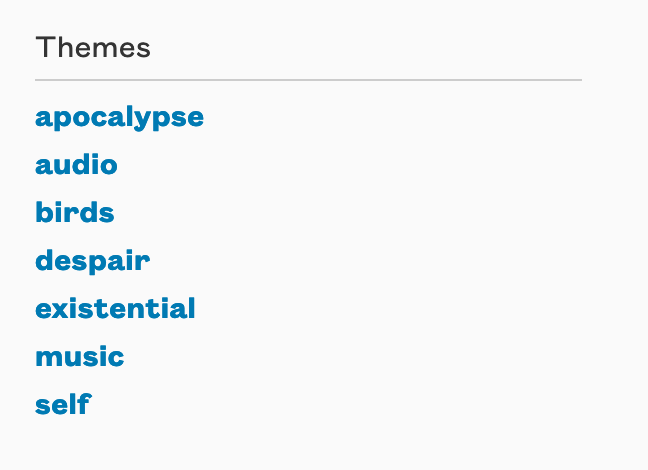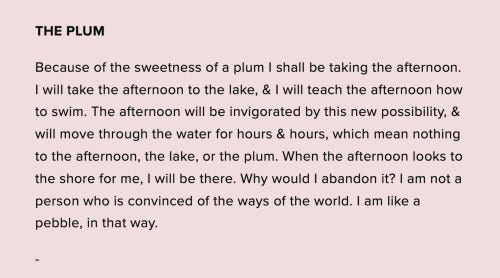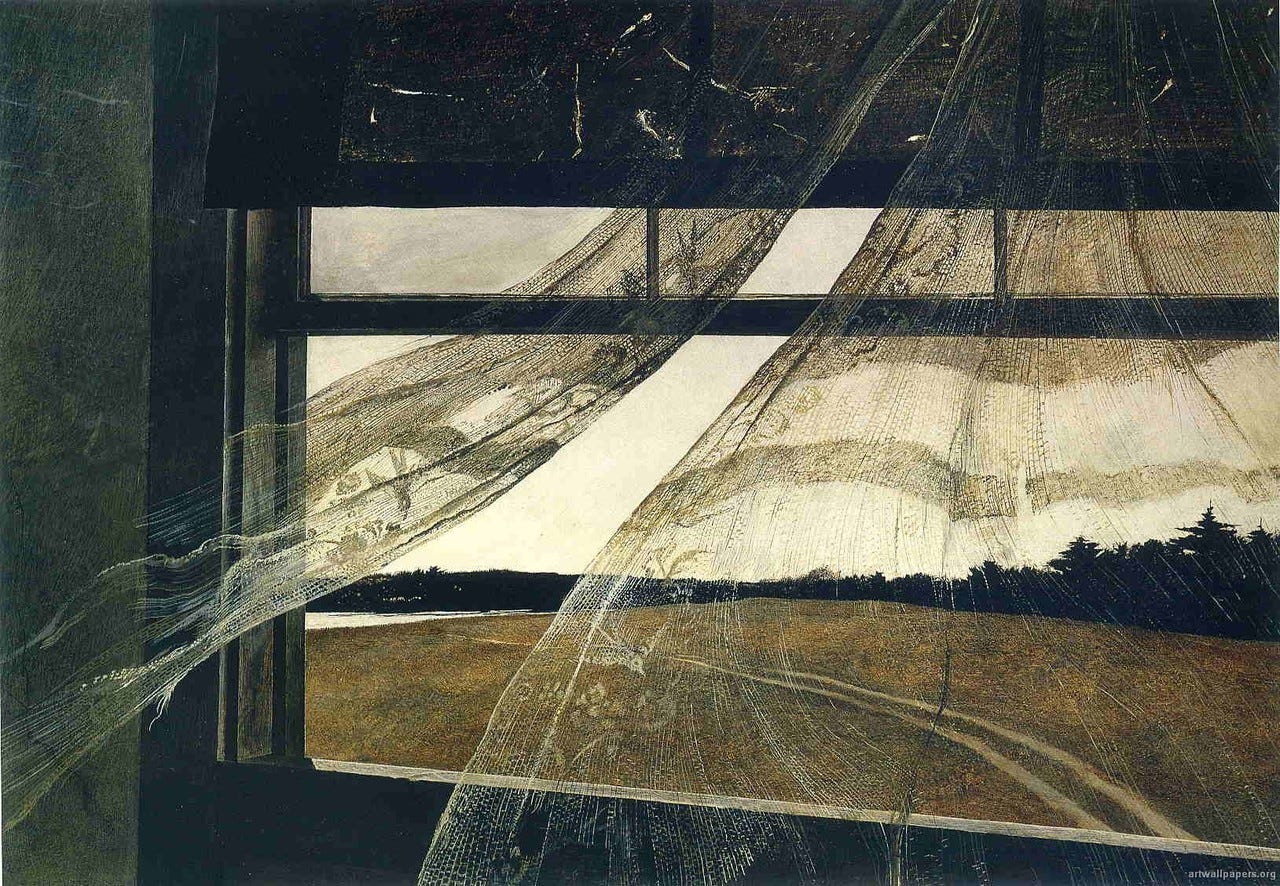Hello!
Happy spring! We made it! Somehow a third (?!) of the way into September because I didn’t feel like writing this last week. Which just should not be right because I feel as though September started yesterday. Genuinely delighted for warmer weather. And happy mid-autumn! Doesn’t work as well with the inverse seasonal thing but it’s a festival about the moon and the moon is the same. Grab a mooncake of your choice (I don’t like the traditional egg yolk ones so none of those) and a cup of water <3
night takes a sunny day
I was very much going to do a springtime piece. It’s my favourite season — I can’t resist being moved by the flowers and the warmth. The reminder that everything changes, but in the way of the air getting warmer and the evenings getting lighter. I think a lot about the line from ‘South London Forever’ by Florence + the Machine, and there’s a special kind of sadness that seems to come with spring, one of the lines of all time. In ‘Daffodil’, released four years later, Florence sings, I couldn’t help it, yes, I let it get in / the hopeless optimism of spring. Placed beside one another the two sentiments co-exist, and even rely on each other. The way that hope itself can feel so hopeless and yet we cling to it because what else is there? Hope as the only way to pull ourselves from sadness.
‘I Was Told the Sunlight Was a Cure’ by Hanif Abdurraqib came to my inbox a few weeks ago, published through poets.org’s poem-a-day.
for the cloak of despair thrown over our bright & precious corners but tell that to the lone bird who did not get the memo dizzy & shouting into the newly unfamiliar absence of morning light from atop a sagging branch outside my window—a branch which, too, was closer to the sky before falling into the chorus line of winter’s relentless percussion all of us, victims to this flimsy math of hours I was told there was a cure for this. I was told the darkness would surrender its weapons & retreat I know of no devils who evict themselves to the point of permanence. and still, on the days I want to be alive the sunlight leaves me stunned like a kiss from someone who has already twirled away by the time my eyes open on the days I want to be alive I tell myself I deserve a marching band or at least a string section to announce my arrival above ground for another cluster of hours. if not a string section, at least one drummer & a loud-voiced singer well versed in what might move me to dance. what might push my hand through a crowded sidewalk towards a woman who looks like a woman from my dreams which means nothing if you dream as I do, everyone a hazy quilt of features only familiar enough to lead me through a cavern of longing upon my waking & so I declare on the days I want to be alive I might drag my drummer & my singer to your doorstep & ask you to dance yes, you, who also survived the groaning machinery of darkness you who, despite this, do not want to be perceived in an empire awash with light in the sinning hours & we will dance until our joyful heaving flows into breathless crying, the two often pouring out of the chest’s orchestra at the same tempo, siblings in their arrival & listen, there will be no horns in the marching band of my survival. the preacher says there will be horns at the gates of the apocalypse & I believed even myself the angel of death as a boy, when I held my lips to a metal mouthpiece & blew out a tune about autumn & I am pressing your ear to my window & asking if you can hear the deep moans of the anguished bird & how the wind bends them into what sounds like a child clumsily pushing air into a trumpet for the first time & there’s the joke: only a fool believes that the sound at the end of the world would be sweet.
The poem isn’t explicitly about spring so much as it’s about survival and the things we hold onto, and the things that hold onto us. Echoes of ‘Instructions on Not Giving Up’ by Ada Limón perhaps, in how both poems start from a point of despair and unfurl continuing onwards despite. The poem opens with the ‘cloak of despair thrown over our bright & precious / corners’ and the dizzy bird that sings out across this sweeping image, oblivious. A bird atop a branch ‘which, too, was closer to the sky before falling into the chorus / line of winter’s relentless percussion’. But aren’t the bird and the branch equally a part of nature? Aren’t we all part of the world? Nature defying itself.
A lot of Abdurraqib’s poetry shares a sense of propelling itself forward, creating breathless rhythm by letting images blend and carefully controlling the use of punctuation or eschewing it altogether. ‘I Was Told the Sunlight Was a Cure’ embodies this whilst dipping in and out of sonic imagery (a paradox — sounds are simply not images). At first the poem mimics ‘the chorus / line of winter’s relentless percussion’ which the speaker is stepping out into. This despair fades into moments of joy, centred around ‘the days I want to be alive’. The first time Abdurraqib uses the phrase, he personifies the sunlight, says it ‘leaves me stunned like a kiss / from someone who has already twirled away by the time my eyes open’. The wanting to live is then repeated, and it is as if the speaker can only truly commit the second time, where enjambment allows a more joyful sound to truly expand:
on the days I want to be alive I tell myself I deserve a marching band or at least a string section to announce my arrival above ground for another cluster of hours. if not a string section, at least one drummer & a loud-voiced singer well versed in what might move me to dance. what might push my hand through a crowded sidewalk
Now we are not just twirling but dancing, which is its own commitment to being alive, to having a body and moving within it. When the speaker circles back to embrace life once again, it is a proclamation, ‘& so I declare on the days I want to be alive’. This time, the audience is invoked, invited to dance, ‘yes, you, who also survived the groaning machinery of darkness / you who, despite this, do not want to be perceived in an empire / awash with light in the sinning hours’. Here, ‘groaning machinery’ invokes industrial labour, returning briefly to unpleasant sounds. Abdurraqib calls on us to not only acknowledge our survival but to reject the empire we find ourselves surviving in, alight with sin. The idea that ‘we will dance // until our joyful heaving flows into breathless crying’ calls explicitly for joy, placing joy in opposition to both empire and (its) machinery of darkness, even if it goes hand-in-hand with tears, ‘pouring / out of the chest’s orchestra at the same tempo’.
It becomes a choice, and a more profound one, knowing that the joyful dance won’t last and having hope anyway. Or at least, that’s what I think.
The poem opened with the cry of a lone bird who did not get the memo and it ends by returning to birdsound,
about autumn & I am pressing your ear to my window & asking if you can hear the deep moans of the anguished bird & how the wind bends them into what sounds like a child clumsily pushing air into a trumpet for the first time & there’s the joke: only a fool believes that the sound at the end of the world would be sweet.
The simile likening the bird’s voice to a brassy trumpet has multiple implications. The speaker rejects horns from ‘the marching band of my survival’, itself juxtaposed against the preacher pronouncing that ‘there will be horns at the gates of the apocalypse’; this suggests that the bird is more apocalypse-herald than marching-band. It also recalls the speaker’s childhood recollection of blowing into a horn as ‘the angel of death’, a strong and direct association between the warbling bird and the speaker. After all, both are stepping out into the world, Perhaps we can both have the apocalypse and the survival after / during. If we are fools for believing in sweetness and string quartets at the end of the world, then that is a small price. (the hopeless optimism of spring). I don’t entirely know what to make of the ending and I don’t want to. I do think about how the impending apocalypse is not made to be frightening; it is another just sound.

That poem is about light and about sound and survival and birds and not about flowers at all, so I will add that all flowers blooming in springtime remind us that things survive and continue surviving. I don’t know what it is about the cold breaking into spring that brings me so much comfort. Maybe it’s the end of another winter, the idea that the hardest part of the year is over. Maybe I watched the Tinkerbell movie too many times as a child. I know that summer is its own kind of spiralling.
I missed summer 2019/20 almost completely — I went to China in December, then to England for exchange. However, I did get the chance to experience the turn of spring in another country, a delight that I have kept folded in my heart. I was really rather depressed in England. hadn’t been there long when I realised that people weren’t exaggerating when they talked about grey English weather. I suppose there must have been some correlation, seasonal depression and all that. Doesn’t feel entirely real to think back on — I was nineteen, technically a teenager, and it was a pretty bad age for me overall. Still, I remember seeing the flowers bloom, are and those rare afternoons where the sun did come out, gleaming through the trees.
Maybe this is all a desperate search for meaning in spring; nature is nature after all, and calendars just an attempt to mark the changes. There are worse things to hold onto, to be sentimental about. Florence: English sun, she has come / to kiss my face and tell me I’m the chosen one. Worse things to find hope in.
Spring. Trying to be real. Maybe it is just the sunlight. Even in Australia where the sun shines throughout winter, it is cold and harsh and disappears too early.
On September 8, I saw Alex the Astronaut at the Corner Hotel in Richmond, a venue I rather adore. This week, Alex was touring her second album(!) titled How to Grow a Sunflower Underwater. Around halfway through the show, Alex and her bandmates took a break and a short documentary played about the process of making How to Grow a Sunflower. The album embodies a steady process of finding hope in difficult times — through the songs themselves and through working on them with friends — even when it seems as impossible as the title: how to grow a sunflower underwater. There was one phrase about hope and sadness that really resonated with my thoughts and feelings but I cannot remember it so we aren’t getting it. Alex has always been such an earnest, heartfelt songwriter and also I adore her. I particularly don’t feel like I can do this album justice so I will just say to listen to ‘Haircut’ if nothing else. One day I’ll lose you and you’ll lose me so what if right now we win?
She closed with ‘Happy Song’ and I know that I indulge in nostalgia a lot for someone who doesn’t like to think about things but the thing is that I saw Alex the Astronaut at this venue four and a half years ago and she got the crowd to sing along to the post-chorus bit and I’m constantly going on about how fantastic concerts are because I truly think this. Our connections to one another and to the world are everything !!! Singing about leaving the music on and songs that can take us from our minds (strange how a song can do that sometimes) and keeping the cold out and watching the people spinning? Songs for days when I want to be alive.
Anyway, I did cry on reflex all through ‘Not Worth Hiding’ for the obvious reasons even though Alex didn’t herself didn’t linger on the song, just did crowd engagement re: when we learned to drive to school (I can’t drive). It’s exactly this:
. . . and I’m standing here! I’m standing here!
Spring playlist which originated in 2018 and has since been added to infrequently—
like a river runs
August was strange. I did a lot but not really and it all kind of blurred for me. Participated in MIFF 2022. Saw Meg Mac. I think I’m getting into routines and doing things again, including being properly back on campus for the first time in years which is just bizarre. Firstly why am I still here. I do feel a bit like I should be doing new things by now although I absolutely am so maybe I could relax a little and like accept a kind of day-to-day life that I’m mostly glad in. I shall continue not thinking about it too hard.
I’ve been really into sleeping lately. As in, three times in the past week I have slept for over thirteen hours for reasons that I don’t know how to unpick and therefore will not. I’ve had I’m getting used to these dizzy spells stuck in my head and I haven’t purposely listened to this song for a while and I am doing so now and it is quite a little song. I’ve also been less randomly dizzy(!) so I don’t know why this line right now.
Listening to Miya Folick’s new EP and a variety of other things including a bit of Flood by Stella Donnelly and a good amount of Surrender by Maggie Rogers. In an instagram post, Miya describes ‘2007’ as a song ‘about wanting to live full and smile big and feel safe’ (she sings as much: I want to smile real big / I want to fucking live) I guess there’s a lot of that going around. Reading Against Disappearance and There’s No Such Thing As An Easy Job and hoping to sort out what I want to read next. I need to gain the ability to finish many books very quickly, if only for a month or two. Alas, I have also been reading Buffy the Vampire Slayer fanfiction. Oh yeah! And the queen is dead!
I was poking around and saw something that gives an approximate reading time for these and I was like that can’t be right. The main body of this is still three very loosely connected parts (I never promised coherency) that add up to being Long so clearly am pretending I hadn’t seen that. Remind me to rhapsode about the sea sometime. Thanks as always and see you <3
Joanne




![[Bridge] And so much stays, so much changes [x6] / And so much stays and so much changes [x2] [Bridge] And so much stays, so much changes [x6] / And so much stays and so much changes [x2]](https://substackcdn.com/image/fetch/w_1456,c_limit,f_auto,q_auto:good,fl_progressive:steep/https%3A%2F%2Fbucketeer-e05bbc84-baa3-437e-9518-adb32be77984.s3.amazonaws.com%2Fpublic%2Fimages%2F23a1d65e-c031-4c6c-b526-dd29635e164e_810x596.png)

